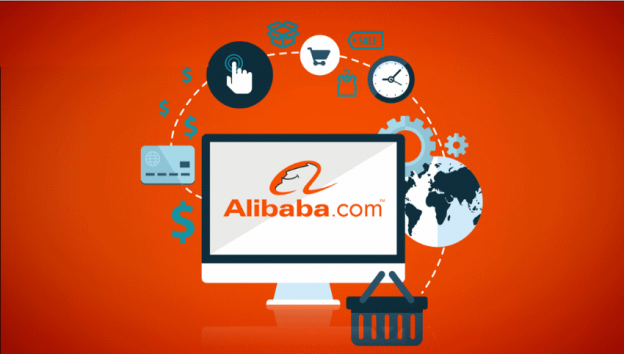
How to Efficiently Import Goods from China to the UK: An Expert's Perspective
Introduction
Importing goods from China to the UK can be a lucrative venture for businesses looking to expand their product offerings and increase profit margins. However, navigating the complex logistics and regulations involved in international trade can be overwhelming, especially for those who are new to the process. In this article, we will provide a comprehensive guide on how to efficiently import goods from China to the UK, offering valuable insights and expert advice to help you streamline your import operations.
Table of Contents
Understanding the Benefits of Importing from China
Importing goods from China offers numerous benefits for businesses in the UK. The country is known for its vast manufacturing capabilities, competitive pricing, and a wide range of products available for export. By importing from China, businesses can access high-quality products at lower costs, allowing them to offer more competitive prices to their customers and increase profit margins.
Choosing the Right Products to Import
When it comes to importing from China, choosing the right products is crucial for success. Conduct thorough market research to identify popular products with high demand in the UK market. Consider factors such as market trends, consumer preferences, and competition analysis to ensure that your chosen products have a high potential for sales and profitability.
Researching Suppliers in China
Finding reliable suppliers in China is essential for a smooth import process. Utilize online platforms, trade shows, and industry networks to connect with potential suppliers. Conduct due diligence by verifying their credentials, assessing their production capabilities, and requesting product samples for quality testing. It is also beneficial to read reviews and testimonials from other customers to gauge their reputation and reliability.
Negotiating Pricing and Terms
Effective negotiation skills are vital when dealing with Chinese suppliers. Aim to negotiate favorable pricing, payment terms, and delivery schedules to optimize your import costs and profit margins. Be prepared to compromise while ensuring that the terms agreed upon are fair and mutually beneficial.
Establishing Clear Communication Channels
Clear communication is key when working with suppliers in China. Overcome language barriers by utilizing professional translators or hiring bilingual staff. Establish regular communication channels through email, phone calls, or video conferences to ensure that both parties are aligned on project objectives, timelines, and any potential issues that may arise.
Managing Shipping and Logistics
Efficient management of shipping and logistics is crucial for timely delivery of goods from China to the UK. Work with reputable freight forwarders who specialize in international shipping. Ensure that all necessary documentation is complete and accurate to avoid delays or customs issues. Track shipments using online tracking tools provided by the shipping companies for real-time updates on the location of your goods.
Navigating Customs and Regulatory Requirements
Understanding customs procedures and regulatory requirements is essential for a smooth import process. Familiarize yourself with the UK's import regulations, including product-specific regulations, labeling requirements, and documentation obligations. Consider hiring a customs broker or seeking assistance from professional import consultants to navigate these complexities effectively.
Understanding Taxes, Duties, and Tariffs
Importing goods from China to the UK incurs taxes, duties, and tariffs that impact the overall cost of your imports. Familiarize yourself with the applicable tax rates for different product categories. Consider utilizing duty relief programs or free trade agreements to minimize costs legally.
Ensuring Quality Control and Product Safety
Maintaining quality control and product safety is critical when importing goods from China. Implement strict quality control measures, including product inspections and testing, to ensure that the imported goods meet UK regulatory standards. Work with reputable testing laboratories to validate product compliance and certifications.
Managing Inventory and Warehousing
Efficiently managing inventory and warehousing is crucial for a smooth supply chain operation. Optimize your inventory levels by leveraging demand forecasting tools and implementing just-in-time inventory strategies. Consider utilizing third-party logistics providers or establishing partnerships with local warehouses in China to reduce lead times and improve delivery efficiency.

Implementing Effective Supply Chain Management
Implementing effective supply chain management practices is essential for a streamlined import process. Utilize technology solutions such as supply chain management software to track inventory levels, monitor order status, and optimize logistics operations. Establish strong relationships with key stakeholders in your supply chain, including suppliers, manufacturers, freight forwarders, and distributors.
Building Strong Relationships with Suppliers
Building strong relationships with suppliers in China fosters trust, reliability, and long-term partnerships. Maintain open lines of communication, provide timely feedback on product quality or delivery issues, and show appreciation for their efforts. Regularly visit your suppliers in China to strengthen the relationship and gain deeper insights into their manufacturing capabilities.
Dealing with Language and Cultural Barriers
Navigating language and cultural barriers is a common challenge when importing from China. Invest in language training for your staff or hire bilingual employees who can effectively communicate with Chinese suppliers. Be respectful of cultural differences and adapt your business practices accordingly to build trust and rapport.
Monitoring Market Trends and Competitors
Staying informed about market trends and monitoring competitors is crucial for staying ahead in the import business. Regularly conduct market research to identify emerging trends, changing consumer preferences, and potential new product opportunities. Analyze your competitors' strategies to identify gaps or areas where you can differentiate yourself.
Mitigating Risks and Protecting Intellectual Property
Importing goods from China comes with certain risks, including intellectual property infringement. Take proactive measures to protect your intellectual property rights by registering trademarks or patents in relevant jurisdictions. Conduct due diligence on suppliers and implement strict quality control measures to mitigate the risk of counterfeit or substandard products.
Understanding Payment Methods and Currency Exchange
Understanding payment methods and currency exchange is essential for efficient import operations. Familiarize yourself with different payment options, such as letters of credit, bank transfers, or online payment platforms like Alibaba's Trade Assurance. Monitor currency exchange rates and consider utilizing hedging strategies to mitigate the impact of currency fluctuations.
Optimizing Import Costs and Profit Margins
Optimizing import costs and profit margins is crucial for a successful import business. Negotiate favorable pricing with suppliers, explore cost-saving opportunities such as bulk ordering or consolidation Guide to import from China services, and implement lean inventory management practices to reduce carrying costs. Continuously analyze your pricing strategy to ensure competitiveness in the market without sacrificing profitability.
Staying Up to Date with Trade Regulations
International trade regulations are subject to change, so it is crucial to stay up to date with any updates or amendments. Regularly review trade publications, government websites, and industry associations for the latest information on import regulations, tariffs, or trade agreements that may impact your business.
Leveraging Technology for Efficiency
Leveraging technology solutions can significantly improve efficiency in your import operations. Utilize automation tools for order processing, inventory management, and logistics tracking. Implement cloud-based systems that enable real-time collaboration between your team members and Chinese suppliers. Explore e-commerce platforms such as Alibaba or Amazon for streamlined product sourcing and sales.
Utilizing Professional Services
Engaging professional services can help streamline your import process and ensure compliance with regulations. Consider hiring customs brokers, freight forwarders, or import consultants who specialize in China-UK trade routes. Their expertise can save you time, reduce risks, and provide valuable guidance throughout the import process.
Preparing for Brexit Impact on Imports from China
Brexit has introduced new challenges and uncertainties for imports from China to the UK. Stay informed about the latest developments regarding trade agreements, tariffs, customs procedures, and regulatory changes. Evaluate the potential impact on your import operations and prepare contingency plans to mitigate any disruptions.
Common Pitfalls to Avoid
Importing goods from China can be complex, and there are common pitfalls that businesses should avoid. Some of these include:
By being aware of these pitfalls, you can proactively address them and minimize potential risks in your import operations.
FAQs
Q: How do I find reliable suppliers in China? A: To find reliable suppliers in China, utilize online platforms like Alibaba or Global Sources, attend trade shows, and network with industry professionals. Conduct due diligence by verifying credentials, assessing production capabilities, and requesting product samples.
Q: What products should I import from China? A: The choice of products depends on market demand, consumer preferences, and competition analysis. Conduct thorough market research to identify popular products with high profit potential in the UK market.
Q: How can I ensure product quality when importing from China? A: Ensure product quality by implementing strict quality control measures such as inspections and testing. Work with reputable testing laboratories to validate compliance with UK regulatory standards.
Q: What are the tax implications of importing goods from China to the UK? A: Importing goods from China incurs taxes, duties, and tariffs that impact the overall cost of imports. Familiarize yourself with the applicable tax rates for different product categories and consider utilizing duty relief programs or free trade agreements to minimize costs legally.
Q: How can I optimize my import costs and profit margins? A: Optimize import costs and profit margins by negotiating favorable pricing, exploring cost-saving opportunities such as bulk ordering, and implementing lean inventory management practices. Continuously analyze your pricing strategy to ensure competitiveness without sacrificing profitability.
Q: What should I do to protect my intellectual property when importing from China? A: Take proactive measures to protect your intellectual property rights by registering trademarks or patents in relevant jurisdictions. Conduct due diligence on suppliers and implement strict quality control measures to mitigate the risk of counterfeit or substandard products.
Conclusion
Importing goods from China to the UK can be a rewarding endeavor if done efficiently and effectively. By following the expert advice provided in this article, businesses can navigate the complexities of international trade, establish strong relationships with Chinese suppliers, optimize their import operations, and ultimately achieve success in the competitive UK market. Stay informed, be proactive, and continuously adapt your strategies to stay ahead of the curve in this dynamic business landscape.